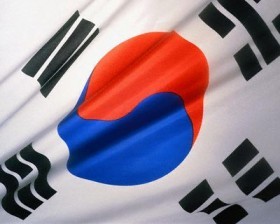 While none of the Nordic or Baltic countries have made it to the very top, despite our wishes, we are proud to see Sweden, Iceland, Denmark and Finland in the top 10 of the latest ICT Development Index (IDI). These global rankings come from the Measuring the Information Society 2011 report, published by the International Telecommunication Union (ITU). ITU is the UN agency for information and telecommunications technologies.
While none of the Nordic or Baltic countries have made it to the very top, despite our wishes, we are proud to see Sweden, Iceland, Denmark and Finland in the top 10 of the latest ICT Development Index (IDI). These global rankings come from the Measuring the Information Society 2011 report, published by the International Telecommunication Union (ITU). ITU is the UN agency for information and telecommunications technologies.
The top spot belongs to South Korea. The country has been termed as the most advanced Internet economy in the world and this is the second consecutive year that it has been ranked number one. This is by no means surprising given the fact that South Korea has:
- 91% mobile broadband penetration (highest globally)
- 96% household Internet connection rate
- 36.6% fixed mobile penetration
The above numbers can simply be replaced by one word, phenomenal. Going through the entire report as such is not possible but we can bring forth some interesting aspects of the study. For example the study ranked Vietnam at number 81, with an improvement of 28% in the IDI value. The growth is dynamic alongside Morocco, Saudi Arabia and Russia, which again hints that developing markets are adapting technology more rapidly. Plus it spells opportunities for the technology giants to make early inroads into these markets.
What Does The Report Mean for The Nordic and The Baltic Region?
It means a lot to say the least. The rankings prove that the region is one of the greenest pastures for digital and internet startups. Let’s take a look at some of the most common questions that any internet startup has to face in a particular region:
- Does the region have a high level of internet penetration?
- Are people early adopters?
- Does the region enjoy an infrastructure that supports digital over traditional models?
- Is there a technology eco-system?
- Are investors more inclined in making investments in new ideas?
Many startup ideas fade away because the answers to these questions are negative in many regions. In the Nordic/Baltic region things are quite reciprocal. You will receive a positive answer for all of the above questions. It might sometimes prove difficult to find investors (which is usually the case with any other region) but it is not because of a lack of interest amongst investors, but rather, the extensive competition between startups.
Let’s try and clarify this with a couple of points from the report itself:
- 8 out of the top ten countries on the Global IDI are European
- Over 85% of European countries are in the top third of the global Index
- 4 of these are Sweden, Iceland, Finland, Denmark [Norway is 11th]
- Estonia is ranked 33rd, Lithuania 35th Latvia at 40
Almost all of the Nordic and Baltic countries are in the top 50 of the index. Simply put – there are plenty of fruits for anyone willing to plough the fields.
That being said, we’ll narrow ourselves to Finland. Finland has improved its position by 7 places, from number 12 in 2008 to number 5 in 2010. Finland takes pride in being an early adopter of new technologies and a society that thinks beyond the present. Take the country’s startup scene as an example. Here’s what makes Finland stand out:
- The first nation to launch commercial GSM network
- One of the first countries to experiment mobile payments and license 3G services
- The first nation to make high speed Internet Access a legal right in 2009
I recall an interview of Suvi Lindén, the former Finnish Communication Minister, to the BBC where she highlighted a key point that almost 96% of Finns are online and that there were a mere 4,000 homes still needing to be connected. This came after broadband connections were made a legal right and the promise to connect every Finn to a 100Mbps connection by 2015.
These are but some points that stand in support of the Nordics and Baltics being the next big place for startups to thrive. Not that we aren’t already seeing a little of it, if you need some evidence on the region’s great startup ecosystem, come visit us at Arctic15 and we can perhaps enjoy a drink or two and make you see the promise that this region holds!




